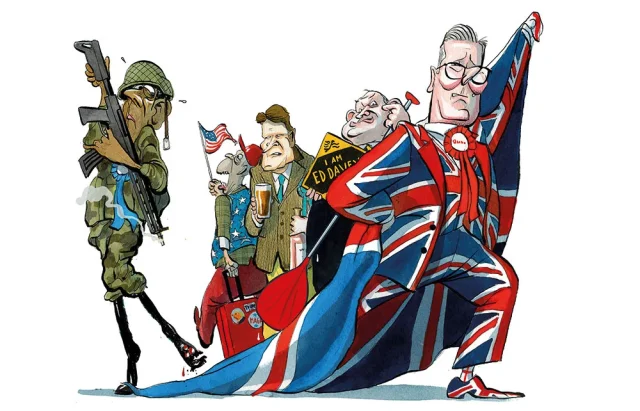
The ECR derives its very name from the British Conservative Party. Such organisation has changed so much in the past years that even its name is not the “Conservative Party”, but simply “Conservatives”. As if there were not an organisation anymore, rather just a bunch of individuals put together.
Their webpage contains nothing about their own history. One thing is focusing on concrete problems the citizens wish to see solved and a different matter is forgetting about a past you should be quite proud of.
That complete lack of roots lies among their current replacement for the Labour party which, let us face it, do feel proud about their socialist past. They might have evolved with Tony Blair to become “New Labour”, but more recently they chose Jeremy Corbyn as their head, with his strong leftwing profile. Lionel Shriver predicted that Tory voters would elect an extreme left wing government to punish the current one for being too left wing.
It is quite astounding that, after Lady Thatcher, the Conservative Party has not been able to produce a solid leader: John Major belonged to the class that had politically killed their own boss; James Cameron lost the Brexit referendum; Theresa May was unable to implement it and said goodbye in tears in front of the nation; Boris Johnson lied about parties during Covid; Liz Truss lasted less than 2 months; and Rishi Sunak has failed to win his first election.
Why would people prefer to choose representatives with a high tax instinct? It is not for their own merits, but for the loss of trust and erosion suffered by the Conservatives, who have recently been caught betting illicitly on when the Prime Minister would call elections, some of them even using insider trading. The Spectator states: “There has been a collapse of any kind of trust in the Tories, because they seem, and indeed are, utter hypocrites”.
In the midst of this degradation, Nigel Farage created his Reform UK party to strike a second historic chapter after successfully bringing his nation out of the European Union. He has managed to challenge the right wing vote supposedly belonging to the Tories, to the point that an Annunziata Rees-Mogg, sister of the famous North East Somerset former parliamentary, publicly expressed her doubts between Conservatives and Reform UK. Except for the hope Nigel represented for many, voters had a hard time choosing between lesser evils.
After 1945, the worst result for the Tories had been 1997, with just 165 seats. An electoral survey gave them 66 commons. Finally it has been 121, still the least in contemporary history, but double the catastrophe that had been announced. The Liberal Democrats have caught 121 constituencies, many of them in classic conservative areas. Sir Keir Starmer, the Labour leader, has not won the election, his opponents have lost it; his ratings are poll, his speeches obscure. Grey times lie ahead for England, Scotland, Wales and Northern Ireland.
Fourteen years of Tory government, the second longest since Second World War, are over. Liz Truss has lost her seat in South West Norfolk. Brexit has not been properly managed to make it a success for people and companies. Growth has been poor, wages stagnating; immigration has risen. The witty critic of Thatcherism John Mortimer brilliantly put it in his acclaimed 1990 novel Titmuss Regained: “My complaint about this conservative party is that it fails to conserve anything”. As a consequence, commentators rightly say the Tories face a long period in opposition.
It could have been worse. Perhaps this shows that the Conservative Party, or just Conservatives, have a solid floor because, after all, the United Kingdom is a conservative land, who appreciates its old customs rather than socialist experiments and demagogy.
Source of image: The Spectator



 Subscribe
Subscribe